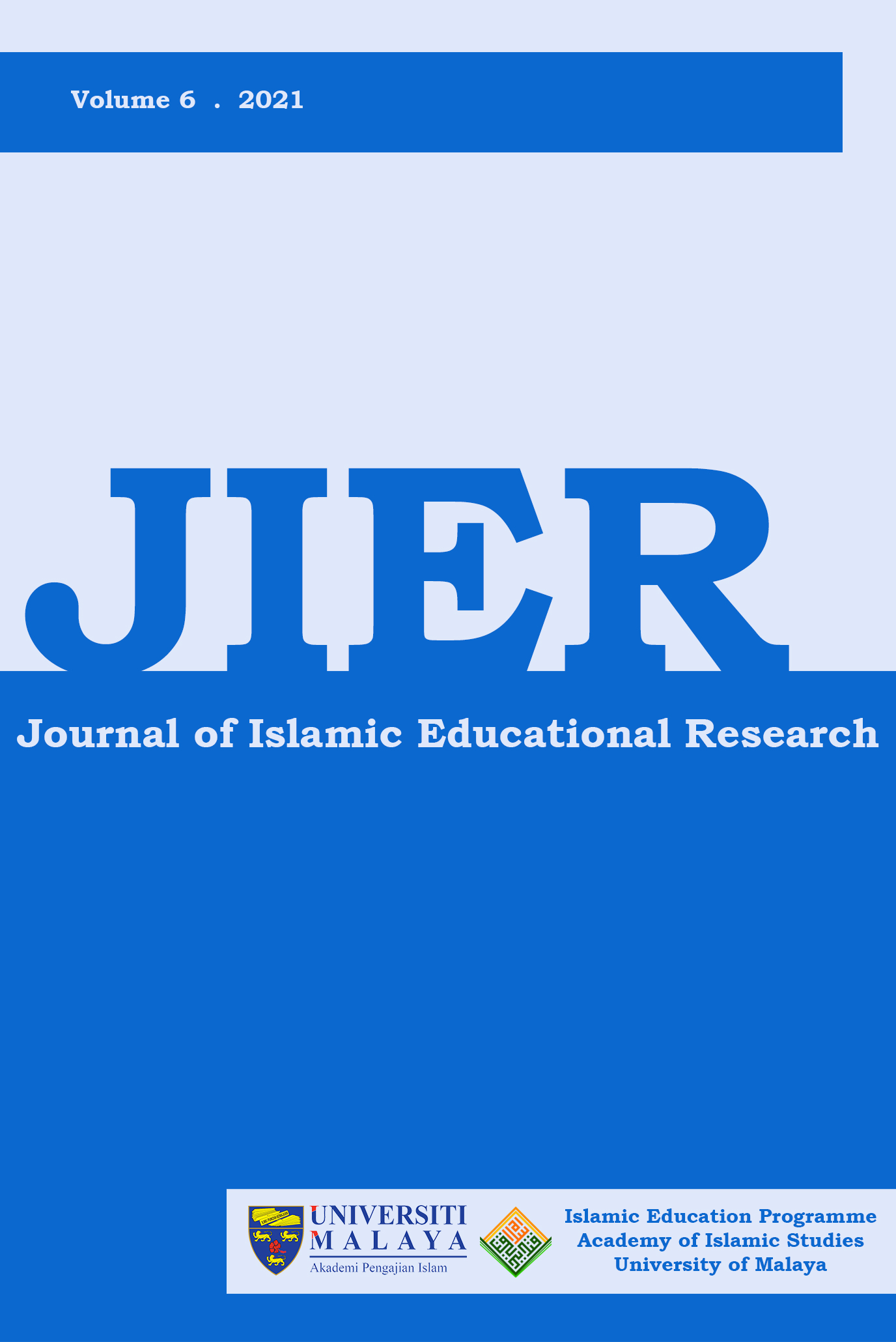تضمين مناهج التربية الاسلامية لمفهوم السِّلْم من وجهة نظر المعلمين: المدارس العربية بكوالا لمبور نموذجا
INCLUSION THE CONCEPT OF PEACE IN ISLAMIC EDUCATION CURRICULUM FROM TEACHERS’ PERSPECTIVE: ARAB SCHOOLS IN KUALA LUMPUR AS A MODEL
DOI:
https://doi.org/10.22452/jier.vol6no2021.6Keywords:
Peace Education, Islamic Education, Curriculum, Teacher's Perspective, Arab SchoolsAbstract
The view of the Islamic education curriculum on the function of peace and its roles does not change with the change of the requirements of modern life. It is the basis of all civilization and progress. Islamic education begins with an attempt to implement peace first in the conscience of the human individual so that his heart is reassured. Then in the family environment because it is an essential cell in building a safe society. Then in the midst of the society to which that human individual belongs. It is surrounded by nations and peoples for acquaintance, diversity and solidarity in the spirit of human tolerance. This study aims to collect the purposes of peace from the Noble Qur’an and the Sunnah, And then to identify the level of inclusion of these meanings in the curricula of Islamic education in Arab schools in Kuala Lumpur. The meanings of peace have been divided into three axes; peace of the individual; peace in the family; The third axis includes peace in society. Whereas, a questionnaire designed to measure this was distributed to (119) teachers of the Islamic education curriculum in Arab schools in Kuala Lumpur. The results showed the low level of inclusion in Islamic education curricula of the foundations of peace, and that it does not amount to achieving the five religious necessities. and the most important purposes of Islamic law for students.
Downloads
Downloads
Published
How to Cite
Issue
Section
License
The published manuscript shall be a copyright of the Islamic Education Programme, Academy of Islamic Studies, University of Malaya, Kuala Lumpur, Malaysia. The published manuscript would not represent the stand or opinion of the Advisory Board, Editorial Board, Co-Editorial Board and the Management Team of Journal of Islamic Educational Research (JIER), or the Islamic Education Programme, Academy of Islamic Studies, University of Malaya.
Note: This is an open access journal which means that all content is freely available without charge to the user or his/her institution. Users are allowed to read, download, copy, distribute, print, search, or link to the full texts of the articles in this journal without asking prior permission from the publisher or the author. This is in accordance with the BOAI definition of open access.






